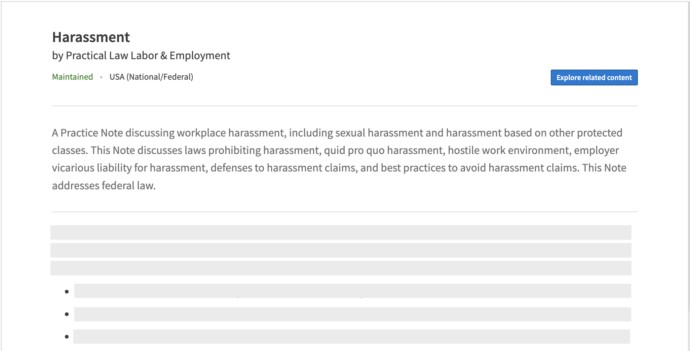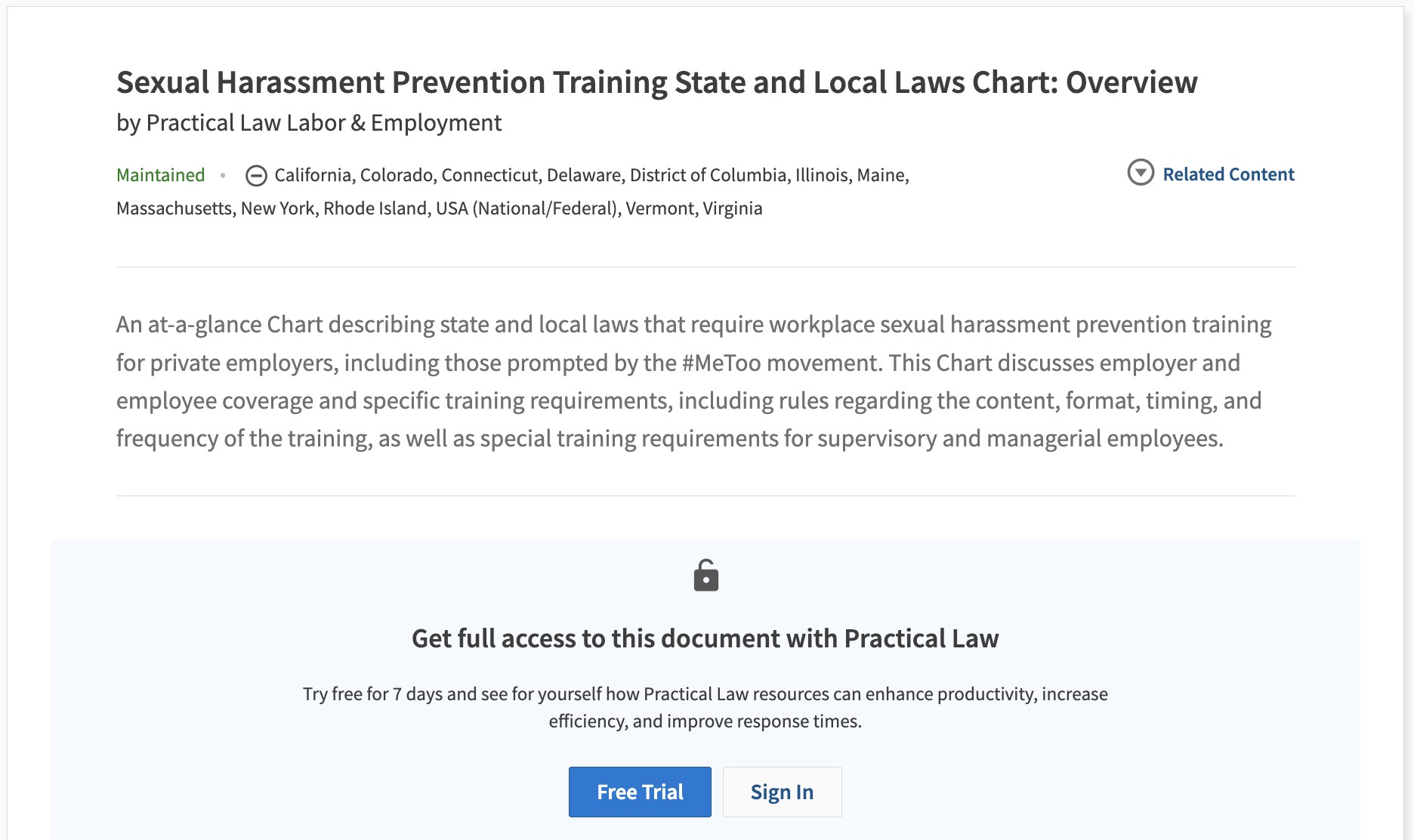Do you have a question about the term “quid pro quo” and how it’s applied in various contexts? At WHAT.EDU.VN, we provide clear, concise explanations of complex terms like “quid pro quo,” exploring its meaning, applications, and implications in law, politics, business, and everyday life. This article dives deep into quid pro quo scenarios and discover real-world examples. Let’s explore this concept with WHAT.EDU.VN and clarify how quid pro quo arrangements impact different facets of our society! If you’re curious about understanding the give-and-take dynamics of quid pro quo or want to differentiate it from other exchanges, continue reading to gain deeper insights and practical knowledge.
Table of Contents
- Decoding Quid Pro Quo: The Basics
- Quid Pro Quo: A Deep Dive into Its Legal Meaning
- Understanding the Origin of Quid Pro Quo
- Quid Pro Quo in Politics: What You Need to Know
- Quid Pro Quo in the Workplace: Navigating the Complexities
- Quid Pro Quo in Education: Understanding Title IX
- Quid Pro Quo in Business: Examples and Implications
- Quid Pro Quo in Culture: Popular Examples in Media
- Distinguishing Quid Pro Quo from Similar Concepts
- Frequently Asked Questions (FAQ) About Quid Pro Quo
- Need More Answers? Ask WHAT.EDU.VN!
1. Decoding Quid Pro Quo: The Basics
Quid pro quo, a Latin term meaning “something for something,” refers to an exchange of services or favors between two parties. These arrangements are often informal and lack the formal structure of a contract. The essence of quid pro quo lies in the expectation of reciprocity.
- Definition: A direct exchange where one thing is given in return for another.
- Context: Can occur in various settings, including legal, political, business, and personal scenarios.
- Implications: While sometimes benign, it often carries negative connotations, especially when involving unethical or illegal activities.
In essence, quid pro quo represents a fundamental aspect of human interaction where actions are exchanged with an implied or explicit understanding of reciprocal benefit. Want to explore this intricate concept further? Join WHAT.EDU.VN to gain a comprehensive understanding and explore other relevant ideas.
2. Quid Pro Quo: A Deep Dive into Its Legal Meaning
In the legal context, quid pro quo is defined as “an action or thing that is exchanged for another action or thing of more or less equal value.” However, it often surfaces in discussions involving unethical or illegal conduct.
- Black’s Law Dictionary: Defines it as a substitute of relatively equal value.
- Yale Law Journal: Highlights that each party agrees to perform their part to get the other party to do theirs, viewing each other as obligated under their agreement.
- Contextual Nuances: While the term itself is morally neutral, it frequently appears in discussions of criminal activity, such as quid pro quo sexual harassment, which violates Title VII of the Civil Rights Act.
2.1. Quid Pro Quo Sexual Harassment
Quid pro quo sexual harassment is illegal and unethical. This form of harassment occurs when a supervisor seeks sexual favors from a subordinate in exchange for workplace benefits or under threat of adverse actions.
- Definition: A supervisor requests sexual favors in return for employment benefits like promotions or raises.
- Detrimental Actions: Threats of demotion or poor performance reviews if sexual advances are rejected.
- Protection: Prospective, current, and former employees are protected under Title VII, allowing them to sue if subjected to such harassment.
Understanding the legal implications of quid pro quo is crucial for recognizing and addressing potential misconduct in various settings. Do you want to delve deeper into the legal aspects of quid pro quo? Visit WHAT.EDU.VN for more information!
3. Understanding the Origin of Quid Pro Quo
The term “quid pro quo” originated in the 16th century, specifically within the practices of apothecaries. Initially, it referred to the substitution of one drug for another, often involving adulterated or cheaper ingredients.
- Early Usage: The earliest known use is from a 1535 translation of a treatise by Erasmus, describing apothecaries substituting cheaper drugs for costlier ones to avoid financial ruin.
- Erasmus’s Quote: Described the practice as “quid pro quo, one thing for another,” noting the exchange of inferior goods for premium ones.
3.1. Evolution of the Meaning
Over time, the meaning of “quid pro quo” evolved from its specific apothecary context to a broader sense of exchanging something for something else.
- 1800s: By this time, the original meaning had largely disappeared, and the modern interpretation became prevalent.
- Legal Texts: The phrase appeared in legal documents well before Shakespeare’s era, indicating its adoption in legal contexts.
- Political Context: In 1801, the Hartford Courant used “quid pro quo” to describe President Thomas Jefferson rewarding Congressmen with positions for their votes, linking it to political activity.
Tracing the origins and evolution of “quid pro quo” offers valuable insights into its current usage and implications. Want to know more about historical word use? Check out WHAT.EDU.VN to explore a wide range of informative topics.
4. Quid Pro Quo in Politics: What You Need to Know
In politics, quid pro quo refers to exchanges where political favors or actions are traded for something else. While not all political quid pro quo is inherently negative, it often carries connotations of corruption or unethical behavior.
- Examples: Allegations of Trump-Russia quid pro quo during the 2016 presidential elections, where assistance in defeating Hilary Clinton was supposedly exchanged for a pro-Russian foreign policy.
- Political Scandals: Cases like Sheldon Silver, the former speaker of the New York Assembly, who was convicted of arranging state grants for referrals, and Dean Skelos, who pressured business executives to provide payments to his son in exchange for political favors.
4.1. Real-World Cases
Real-world cases highlight the potential for abuse and corruption within political quid pro quo arrangements.
- Sheldon Silver: Arranged for the State Health Department to award grants to Robert Taub, who then referred legal claims to Silver’s associated law firm.
- Dean Skelos: Pressured business executives to give his son Adam approximately $300,000 in payments for services, leveraging his official position to benefit those who made the payments.
These examples illustrate how quid pro quo arrangements can undermine the integrity of political systems. Ready to expand your understanding of political dynamics and ethical practices? Discover a variety of educational resources at WHAT.EDU.VN.
5. Quid Pro Quo in the Workplace: Navigating the Complexities
In the workplace, quid pro quo often surfaces in discussions related to sexual harassment and discrimination. It is a violation of Title VII of the Civil Rights Act, which protects employees from discrimination based on sex.
- Definition: Quid pro quo sexual harassment occurs when a supervisor seeks sexual favors in exchange for employment benefits or under threat of adverse actions.
- Common Examples: Offering a promotion or raise in return for sexual favors, or threatening job security if advances are rejected.
5.1. Types of Quid Pro Quo Harassment
Understanding the different types of quid pro quo harassment is essential for recognizing and addressing these issues in the workplace.
- Benefit-Based Harassment: A supervisor offers a tangible job benefit in exchange for sexual favors.
- Detrimental Harassment: A supervisor threatens adverse actions, such as a poor performance review or demotion, if sexual advances are rejected.
- Prospective Employees: Even prospective employees are protected and can claim harassment if offered a job in exchange for sexual favors.
However, if the alleged harasser does not follow through on the threat or promise, it typically falls under “hostile work environment” harassment. Want to learn more about workplace ethics and legal protections? Visit WHAT.EDU.VN for detailed insights and resources.
6. Quid Pro Quo in Education: Understanding Title IX
In education, quid pro quo harassment parallels workplace harassment, with someone in a position of power (e.g., a teacher or professor) offering something to a student in exchange for sexual favors.
- Examples: A professor offering a positive recommendation or a teacher giving a good grade in exchange for sexual favors.
- Title IX Protection: This type of quid pro quo harassment falls under Title IX, which protects individuals from sex-based discrimination in education programs and activities.
6.1. Key Differences and Implications
The primary difference between quid pro quo in education and the workplace is the legal framework under which it is addressed.
- Title VII (Workplace): Governs employment-related harassment.
- Title IX (Education): Protects against sex-based discrimination in educational settings.
Understanding these protections is crucial for maintaining a safe and equitable educational environment. Interested in exploring more about educational policies and student rights? Check out WHAT.EDU.VN for informative articles and resources.
7. Quid Pro Quo in Business: Examples and Implications
In the business world, quid pro quo can manifest in various forms, ranging from unethical practices to legitimate business strategies. Corporate counsels must be vigilant about scams leveraging quid pro quo deception.
- Examples: Insider trading, where company employees provide non-public information for personal gain, and earn-out clauses in merger agreements, where sellers receive greater payouts if the sold company meets specific goals.
- Financial Crimes: Insider trading often involves determining if a quid pro quo arrangement existed between the parties, such as whether the tippee’s actions financially benefited the tipper.
7.1. Insider Trading
Insider trading is a prominent example of quid pro quo in business, involving the exchange of confidential information for personal profit.
- Definition: A company employee provides non-public information to someone outside the firm, who uses that information to make a trade or investment.
- Legal Evaluation: Courts often assess whether a quid pro quo arrangement existed by determining if the tippee’s actions financially benefited the tipper through payments, services, or shared profits.
7.2. Positive Usages
Quid pro quo is not always negative in business. It can also be part of legitimate strategies, such as incentive programs and earn-out clauses.
- Earn-Out Clauses: The seller agrees to terms where they receive a greater payout if the sold company achieves specified goals, incentivizing them to ensure the company’s success.
- Incentive Programs: Vendors run contests rewarding salespeople who generate the most new commissions, motivating employees to achieve targets.
However, it is essential to be aware of the potential downsides, such as the pressure on underperforming employees. Ready to enhance your knowledge of business strategies and ethical practices? Visit WHAT.EDU.VN for a wealth of information.
8. Quid Pro Quo in Culture: Popular Examples in Media
Quid pro quo is a recurring theme in movies, TV shows, and other forms of media, often used to depict complex relationships and moral dilemmas. These examples can illustrate the concept in a memorable way.
- The Godfather: The opening scene features an undertaker asking Don Corleone to avenge an insult to his daughter, with the understanding that Corleone may call on him for a service in the future.
- Silence of the Lambs: Hannibal Lecter offers Clarice Starling information in exchange for her sharing personal details, establishing a quid pro quo relationship.
- Strangers on a Train: A psychopath proposes a quid pro quo, where each will murder someone the other knows to remove suspicion, highlighting the sinister potential of such arrangements.
8.1. Cultural Impact
The use of quid pro quo in culture often serves to indicate villainy or morally ambiguous situations.
- Villainous Characters: Characters who offer or accept quid pro quo arrangements are often portrayed as untrustworthy or corrupt.
- Moral Dilemmas: These scenarios explore the ethical implications of exchanging favors and the potential consequences of such agreements.
Exploring these cultural examples can provide a deeper understanding of how quid pro quo is perceived and utilized in storytelling. Interested in uncovering more about the portrayal of complex concepts in media? Explore a variety of educational topics at WHAT.EDU.VN.
9. Distinguishing Quid Pro Quo from Similar Concepts
It is essential to differentiate quid pro quo from other interactions, such as favors done without expectation of reward and pro bono work, which carries no negative connotations.
- Favors Without Expectation: Many people do favors for friends or strangers without expecting anything in return, and may even be offended if offered a financial reward.
- Appreciation vs. Expectation: Appreciation is different from a sense of expectation, which is central to the concept of quid pro quo.
9.1. Pro Bono Work
Pro bono work is a healthy alternative to the negative connotations of quid pro quo, where professionals provide services without expecting financial reward or reputational gain.
- Definition: Lawyers and other professionals devote time and labor to underprivileged clients and important causes without expectation of payment.
- Motivation: Professionals receive satisfaction from doing good for others and ensuring equitable access to services, regardless of financial circumstances.
9.2. Diverse Perspectives
Understanding diverse perspectives on quid pro quo can provide a more nuanced view of its implications.
- David Brooks: Notes that cutting deals often leads to quid pro quo, bribes, or other unethical exchanges.
- Mike Miller: Argues that not every business deal is a quid pro quo, emphasizing that people are allowed to make money without unethical implications.
- Mark Galli: Suggests that only unconditional grace can transform hearts and demolish notions of quid pro quo, emphasizing the importance of free gifts and acts of love.
By understanding these distinctions and perspectives, you can better navigate the complexities of quid pro quo in various contexts. Ready to expand your understanding of ethical practices and social dynamics? Visit WHAT.EDU.VN for detailed insights and resources.
10. Frequently Asked Questions (FAQ) About Quid Pro Quo
To further clarify the concept of quid pro quo, here are some frequently asked questions:
| Question | Answer |
|---|---|
| What does “quid pro quo” literally mean? | In Latin, “quid pro quo” literally means “something for something,” indicating an exchange of goods or services. |
| Is quid pro quo always illegal? | No, not always. While it often carries negative connotations, especially in legal and political contexts involving unethical or illegal activities, simple exchanges of favors are not inherently illegal. |
| What is quid pro quo sexual harassment? | It’s a form of workplace harassment where a supervisor offers employment benefits or threatens adverse actions in exchange for sexual favors. This is illegal under Title VII of the Civil Rights Act. |
| How does quid pro quo apply in politics? | In politics, it refers to exchanges where political favors or actions are traded for something else. While not always negative, it often implies corruption or unethical behavior. |
| What are some business examples of quid pro quo? | Examples include insider trading, where confidential information is exchanged for personal profit, and earn-out clauses in merger agreements, where sellers receive greater payouts if the sold company meets specific goals. |
| How is quid pro quo different from pro bono? | Quid pro quo involves an expected exchange, often with an implied or explicit understanding of reciprocal benefit. Pro bono, on the other hand, involves providing services without expecting financial reward or reputational gain. |
| What is the origin of the phrase? | The term originated in the 16th century among apothecaries, referring to the substitution of one drug for another, often with adulterated or cheaper ingredients. |
| How does Title IX relate to quid pro quo? | Title IX protects individuals from sex-based discrimination in educational settings. Quid pro quo harassment in education falls under Title IX when a teacher or professor offers something to a student in exchange for sexual favors. |
| Can prospective employees experience quid pro quo harassment? | Yes, prospective employees can claim quid pro quo harassment if they are offered a job in exchange for sexual favors. This protection falls under Title VII. |
| What should I do if I experience quid pro quo harassment? | If you experience quid pro quo harassment, document the incidents, report them to the appropriate authorities within your organization or institution, and seek legal advice. |




11. Need More Answers? Ask WHAT.EDU.VN!
Do you find yourself struggling to understand complex topics or needing quick, reliable answers to your questions? At WHAT.EDU.VN, we’re dedicated to providing clear, concise, and accessible explanations on a wide range of subjects. Whether it’s legal terms like “quid pro quo,” intricate business concepts, or confusing scientific principles, we’re here to help.
We understand the challenges of finding trustworthy and easy-to-understand information, which is why we’ve created a platform where you can ask any question and receive well-researched, straightforward answers. Our goal is to empower you with knowledge and make learning a seamless, enjoyable experience.
11.1. Why Choose WHAT.EDU.VN?
- Free Answers: Get your questions answered without any cost.
- Expert Explanations: Our content is carefully crafted to be accurate, informative, and easy to grasp.
- Wide Range of Topics: From law and politics to business and culture, we cover diverse subjects to cater to your curiosity.
- Community Support: Connect with a community of learners and experts to exchange knowledge and insights.
11.2. How to Get Started
- Visit Our Website: Go to WHAT.EDU.VN.
- Ask Your Question: Submit your question through our easy-to-use interface.
- Get Your Answer: Receive a detailed, well-explained response to your query.
11.3. Contact Us
For more information or assistance, feel free to reach out to us:
- Address: 888 Question City Plaza, Seattle, WA 98101, United States
- WhatsApp: +1 (206) 555-7890
- Website: WHAT.EDU.VN
11.4. Call to Action
Don’t let your questions go unanswered. Visit WHAT.EDU.VN today and discover the power of accessible, expert knowledge. Ask your question now and join a community dedicated to learning and growth!
At what.edu.vn, we believe that everyone deserves access to clear and reliable information. Let us help you navigate the complexities of the world and find the answers you seek.
